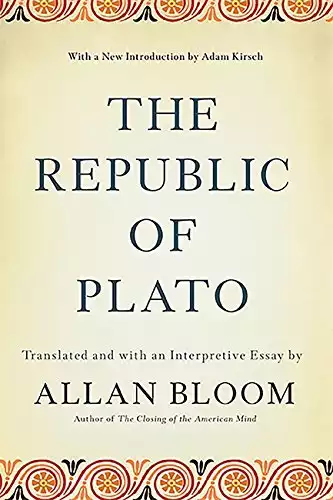There are numerous ways to build your mindset, but none are as profound as reading philosophy books. Through these books, some of the greatest minds around ask questions and delve deep into thought.
While there isn’t always a clear and distinct answer to the many questions of philosophy, the entire field is a gateway to a higher sense of self. It gets you to think about all manner of things.
Below, we cover some of the essential philosophy books that are best for those who are just starting or looking to expand their mind.
How To Choose a Good Philosophy Book
Before getting to this list, we’ve researched ideal philosophy books to help you expand your mind.
We’ve found that the best philosophy books excel in the following criteria:
- Complexity – Philosophy isn’t a subject that you can’t dive into immediately and understand everything. The books that we selected are great for people making the first leap.
- Viewpoint – With philosophy, in particular, the author’s views are more important than in your standard book. We want to ensure the viewpoints and thoughts being discussed still hold up to this day.
- Open-mindedness – Philosophy is all about asking perplexing questions and unraveling the answer. You might not reach a conclusion in the end, but these books are designed to get you to think.
- Culture – The last criterion is culture. A lot of these books come from early philosophers from centuries ago or possibly from recent years. These philosophy books should paint a picture of the culture.
11 Philosophy Books You Should Read
1. Meditations
One that you’ll find on many of these types of lists is Meditations and for good reason. It’s the only document of its kind to ever be made. The book focuses on the private thoughts of the world’s most powerful man who advises himself revolving around making good on his responsibilities and the obligations of his position.
We know enough about Marcus Aurelius to know that he was trained in stoic philosophy and practiced every night on a series of spirituality exercises. These exercises were designed to make him humble, patient, empathetic, generous, and strong in the face of whatever problem he had to face off. And he faced plenty of problems since he was basically the emperor of roughly a third of the planet.
All of that is poured into this book, and you are bound to remember a line or more that will be applicable in your life. It’s a philosophy book staple.
2. Letters From a Stoic
Similar to Marcus Aurelius, Seneca was another powerful man in Rome. He was a brilliant writer at the time and was the kind of guy to give great advice to his most trusted friends. Fortunately, much of his advice comes in letters, and those letters happen to be in this book. The letters themselves provided advice on dealing with grief, wealth, poverty, success, failure, education, and more.
While Seneca was a stoic, he has a more practical approach and has borrowed from other schools of thought for his advice. As he said when he was alive, “I don’t care about the author if the line is good.” Similar to Meditations, there are several brilliant lines and advice that are still relevant to this day.
3. Nicomachean Ethics
Aristotle was a famous Greek philosopher at the time with profound knowledge. He’s named after a form of logic as well called Aristotelian logic. Through this book, Aristotle writes about the root of all Aristotelian ethics. In other words, this book contains the moral ideas that form a base for pretty much all of western civilization.
4. Beyond Good & Evil
Friedrich Nietzsche played a big role in the philosophical world. He was one of the leading philosophers of the existential movement, and it all came through this particular book. He is a brilliant mind. However, the issue with a lot of his work is that it’s all written in German.
Fortunately, this book is one of the slightly more accessible ones since it’s translated. Within the book, he breaks down the paradoxes of conventional understandings of morality. By doing this, he sets the stage for a lot of the 20th-century thought process that followed.
5. Meditations on First Philosophy
In Meditations on First Philosophy, René Descartes breaks his book down into six meditations. The book takes a journalistic style that is structured much like a six-day course of meditation. On day one, he gives instructions on discarding all belief in things that are not guaranteed. After that, he tries to establish what can be known for sure. Similar to Meditations, this is a staple and influential philosophical text that you can pick up.
6. Ethics
Written by Benedict de Spinoza, this came at a time during the Age of Enlightenment. Enlightenment was a movement that dominated the world of ideas in Europe during the 17th and 18th centuries and with that, many schools of thought emerged and were presented through books.
Out of the many influential philosophy books published back then, Ethics dominated during this period as it discussed the basis of rationalism. Even though we’ve developed further beyond that, Ethics can introduce new ways of thinking from this particular school of thought.
7. Critique of Pure Reason
Immanuel Kant is another great philosopher who brought together two of history’s biggest opposing schools of thought into a single book. Those schools being rational thought and empirical experiential knowledge—knowledge gained through experience.
In Critique of Pure Reason, Kant explores human reason and then works to establish its illusions and get down to core constituents. Overall, you can learn more about human behavior and thought processes and thus, open your mind more to how you think and process everything around you.
8. On the Genealogy of Morals
Another piece of work from Nietzsche that is accessible to us is On the Genealogy of Morals. According to Nietzsche, the purpose of this book is to call attention to his previous writings. That said, it does more than that so you don’t need to worry so much about reading his other books.
In this book, he expands on the cryptic aphorisms that he brings up in Beyond Good and Evil and offers a discussion or morality in a work that is more accessible than a lot of his previous work.
9. Everything Is F*cked
The only book on this list that’s been written in the past few years, this book by Mark Manson aims to explain why we all need hope while also accepting that hope can often lead us to ruin too.
While many of the books on this list are all practical, this one is the most realistic one since not even the greatest of philosophical minds could predict things like technology, Twitter, and how our political world has shaped.
Manson delivers a profound book that taps into the minds of our ancestral philosophers, such as Plato, Nietzsche, and Tom Waits, and digs deep into various topics and how all of it is connected—religion and politics, our relationship with money, entertainment, and the internet.
Overall, this book serves as a challenge to all of us—a challenge to be more honest with ourselves and connect with the world in a way we’ve never tried before.
10. Reasons and Persons
One of the most challenging philosophy books to read on this list, Reasons and Persons will send you on quite the trip. Through a lot of painstaking logic, Derek Parfit shows us some unique perspectives on self-interest, personhood, and whether our actions are good or evil.
Considered by many to be an important psychological text around the 20th century, the arguments made about those topics will open your mind to a brand new way of thinking.
11. The Republic of Plato
Written by Plato himself, this book is the origin of political science and offers a brilliant critique of government. As you would expect, the critique is still important today. If you’re looking to understand the inner thoughts of Plato, this is one of the best books around.
Final Thoughts
Philosophy books take a while to digest as they provide profound knowledge and leave you with many questions. With many of these philosophy books, you need to take your time with them, and you might have to read through them a few times as well. And with every read, your mind will only expand.
Featured photo credit: Laura Chouette via unsplash.com























































